We have all lost someone in our lives, whether that’s through death or the breakdown of a relationship. Both are painful and both require us to grieve for the missing loved one. In many ways, the loss of a partner when a relationship ends feels worse; perhaps because the grief has been chosen for us. It fits us like a second skin, but when someone dies, the grief, although painful and also made to measure, is like the remembrance of a close and comforting hug.
I have experienced both these things of late and want to express that grief through my work.
The video below was made a few years back. Filmed in Shotover Wood in Oxford, it shows the shadows cast by trees on a summer’s day and was a way of visualising the idea that all that’s left of the past is like the shadows in the film; that if we want to imagine what the past was really like, we have to imagine the trees, the sky, the sun, the colours and the sounds.
The idea of the everyday within the present moment has always been of interest to me, particularly in regards to how we can empathise with those in the past; particularly those who experienced times of trauma. When I visited Auschwitz-Birkenau in 2006, I was struck by the movement of the trees, aware that those who had suffered so much would have seen exactly what I was seeing. It was something so everyday, but something which had the power to link us together despite the difference in time and of course experience.
“‘…You have no idea how tremendous the world looks when you fall out of a closed, packed freight car! The sky is so high…’
Tadeusz Borowski
‘…and blue…’
‘Exactly, blue, and the trees smell wonderful. The forest – you want to take it in your hand!’”
“Another leap in time, to a different landscape and different colours. The colour is blue: clear blue skies of summer. Silver-coloured toy aeroplanes carrying greetings from distant worlds pass slowly across the azure skies while around them explode what look like white bubbles. The aeroplanes pass by and the skies remain blue and lovely, and far off, far off on that clear summer day, distant blue hills as though not of this world make their presence felt. That was the Auschwitz of that eleven-year-old boy.”
Otto Dov Kulka
“The air, the woods, breathing.”
Adam Czerniakow
The important thing here is how things we experience in the natural world, like trees and the sky, the wind and the rain, can connect us to those in the distant past, because they too would have experienced them. Our lives might be completely different, but those things stay the same.
Back to the trees at Shotover…
I loved the ‘calligraphy’ of the shadows as they wrote themselves on the blank piece of paper on the ground, and used that idea to paint those shadows using ink and calligraphic brushes. It was as if the trees were using me to write. They were like the words of a language created and forgotten in a moment. No-one can read these words; they speak only of a presence – my presence – in the woods at that particular moment.
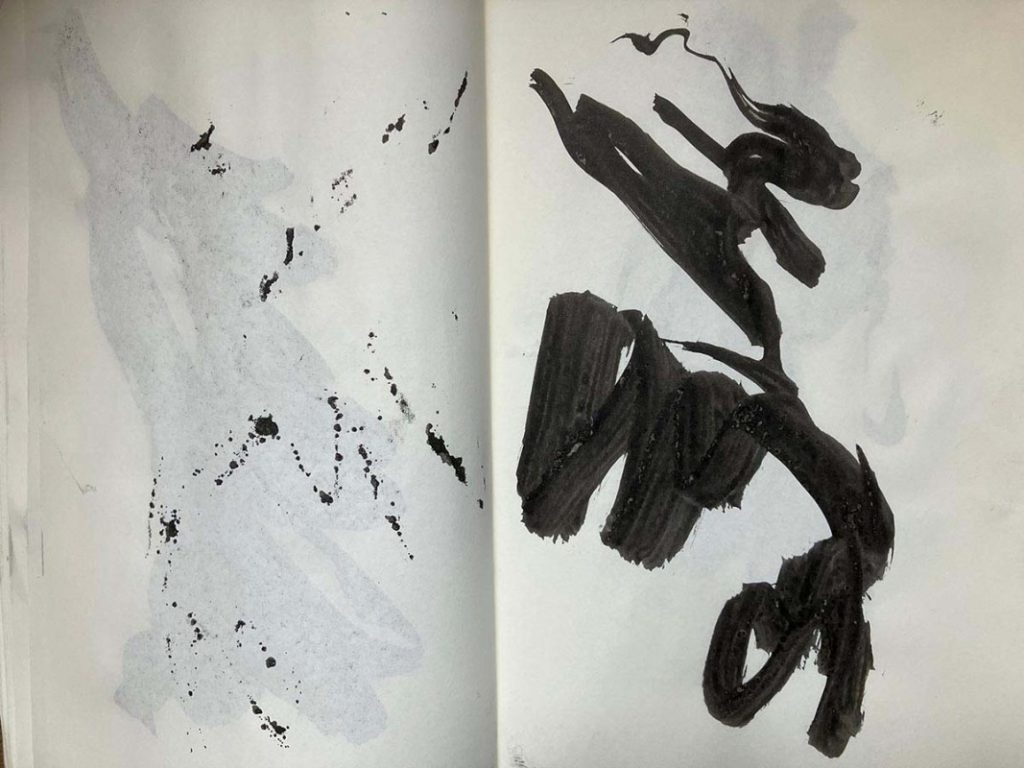
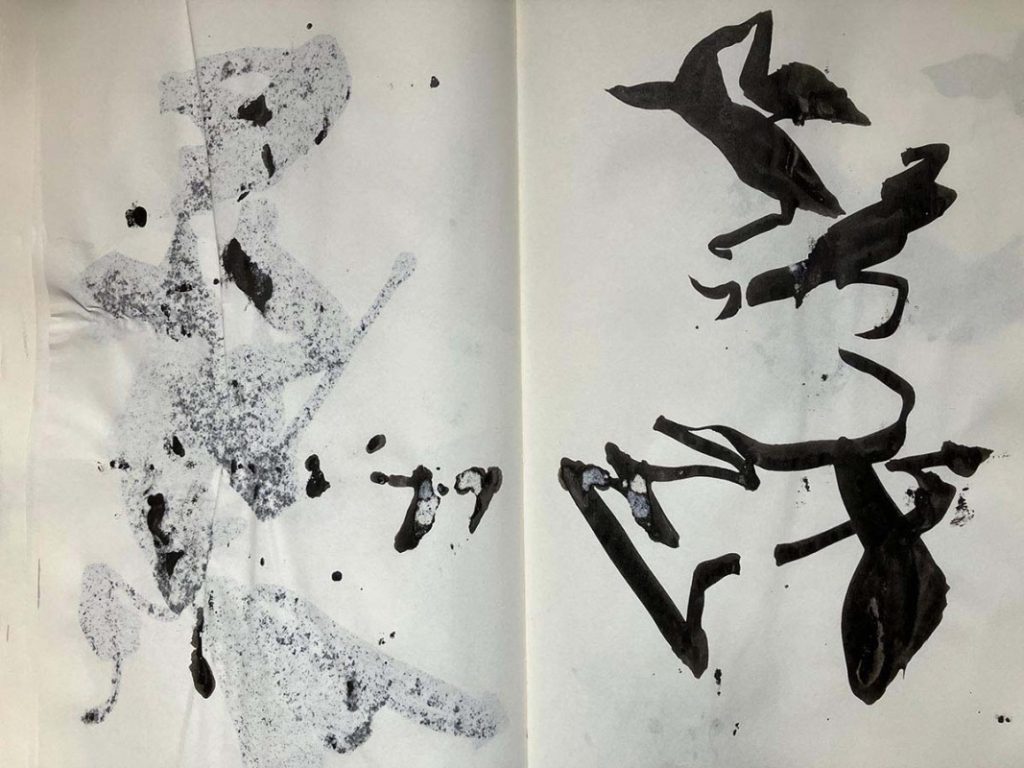
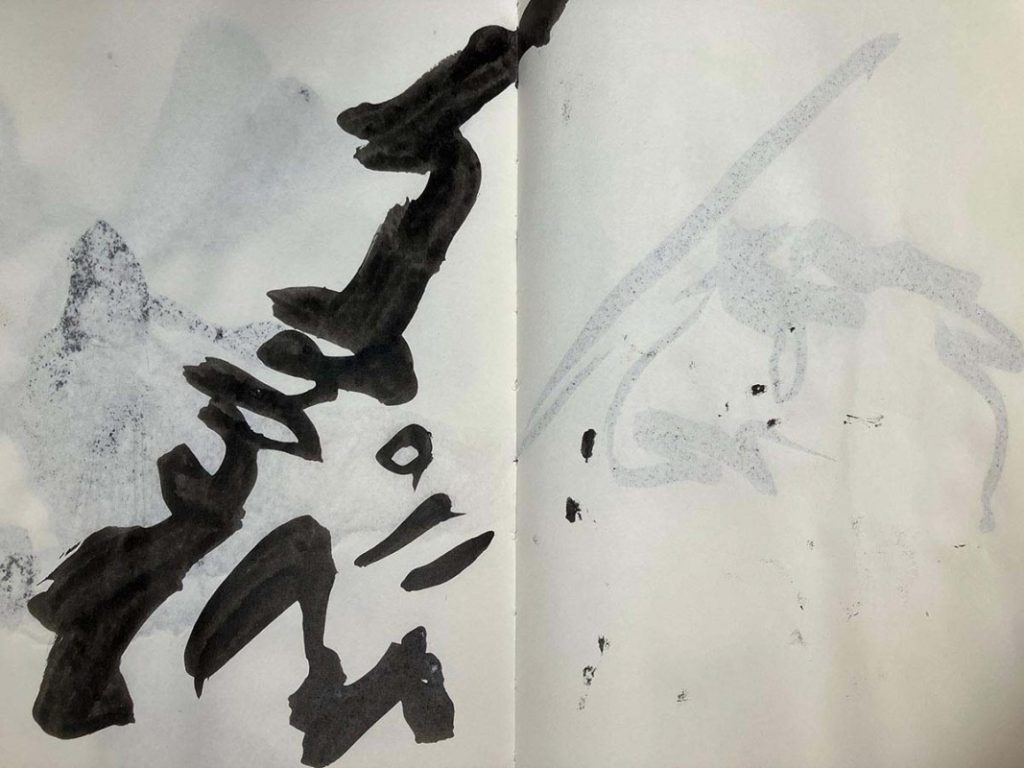
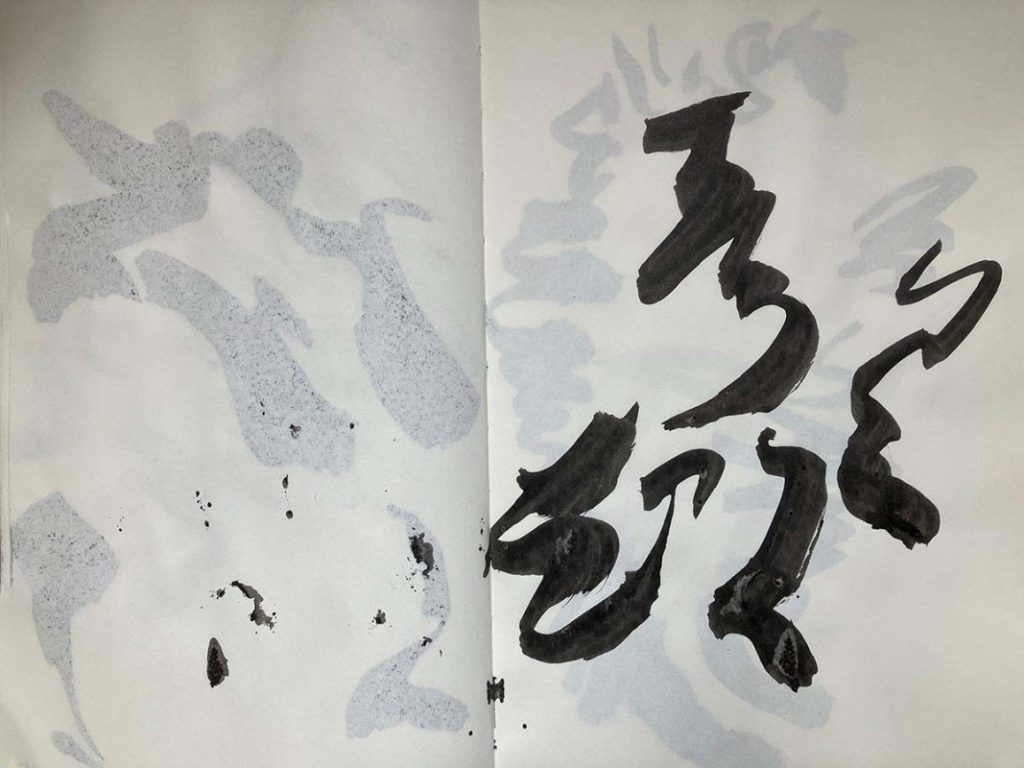
As I wrote above, if we want to imagine what the past was really like, we have to imagine the trees, the sky, the sun, the colours and the sounds. So having transferred these ‘characters’ to canvas, I began to paint, adding colour, as if, with the video, trying to imagine the fullness of the moment from which they were taken.
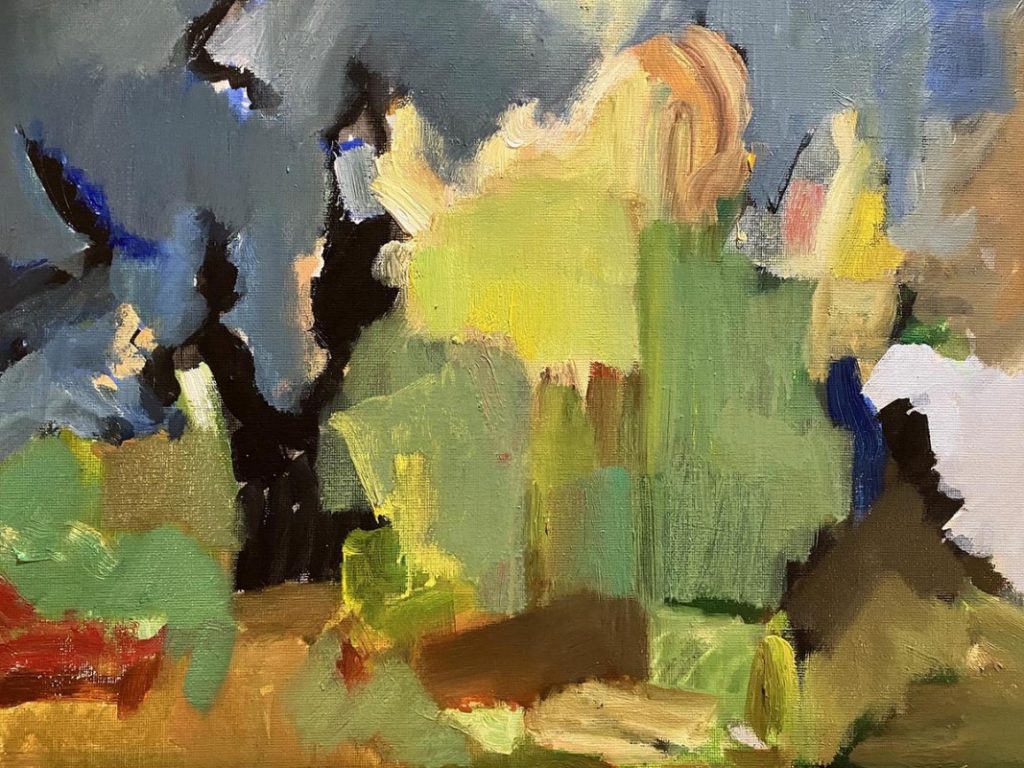
So where does this with my own feelings of grief?
Grief is an expression of our relationship to someone’s absence. Its language is written in shadows like the patterns cast by the trees. But these shadows are cast by the memory of our loved one. Remembering the colours, the sounds and how it felt is painful. But remember them we must – and without regret.
Holding on to regret is like clutching feelings of anger. Soon they will start to eat away at us, damage us. We have to let them go by transforming them, just as we can try and transform our own suffering.
To transform our suffering we must ground ourselves in the present moment. When a relationship ends, it’s all too easy to become entangled in our thoughts, trying to make sense of the other person’s actions. I found myself doing just that for days and days, walking round in circles, going nowhere except down. And what would it achieve anyway? Trying to work out why something happened won’t change the fact that it did happen.
All I could learn to do was be as present in the moment as I could, to let go of my thinking about the past. That’s not to say I had to try and forget her; the memories of our time together would always be with me and precious with it. But when I think of those memories, I’m not trying to understand them or change them. I just had to stop striving for answers which I’d no chance of knowing, as if knowing them would somehow change the outcome and alleviate the pain.
I still walk and I still think, but walking meditation, where one is grounded step by step in the moment, helps still the mind and cultivate a sense of peace. Looking at the trees, the clouds, the sky. Feeling the wind or the rain (or both) helps me find the peace and contentment within. It helps my mind reconnect with my body just as I can try and connect with those who lived generations before us.